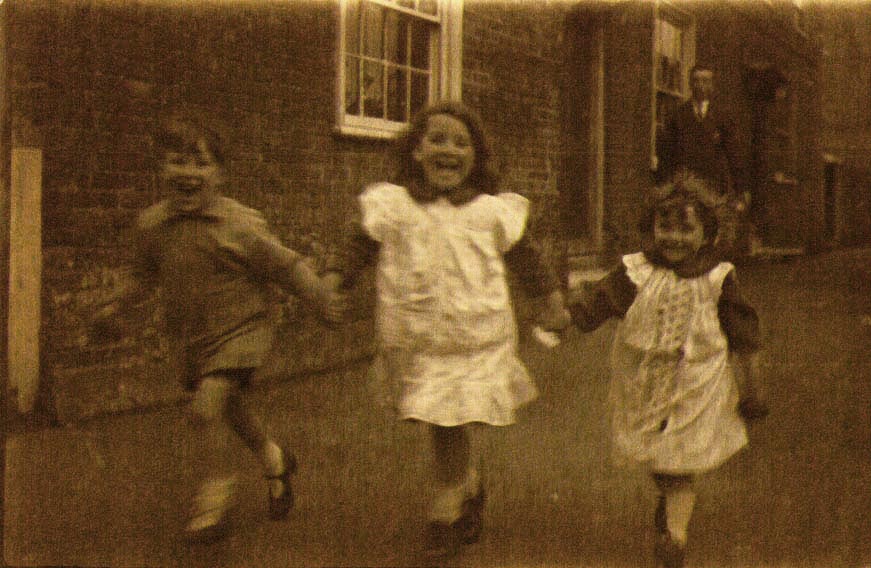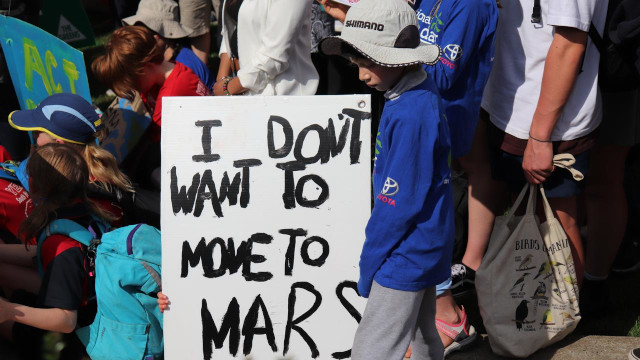Threats to children about bogeymen seem to exist in all cultures. The common feature is the invocation of a non-existent monster to scare children into good behaviour. The idea is fundamentally abusive, although one must suspect that most children soon learn to take the stories with a pinch of salt, especially if their friends seem to be warned about different bugaboos. Nobody they know ever gets “taken,” and I suspect that the twinkle in the eye of the adult tale-tellers plays a mitigating part too. Even so, in his later years Charles Dickens bore resentment against a childhood nurse who terrorised his dreams with such tales.
For whatever reason, the tradition is less common in what we like to call more sophisticated societies. Its commonest modern form is the rather weak suggestion that Father Christmas might fail to deliver presents to naughty children. Once again universal experience shows children that this is an empty threat (barring the kind of psychopathic step-parent who would probably have poisoned the child as a toddler, before cancelling Christmas as a punishment, anyway).
The nearest I ever got to this threat was when my mother, desperate because at the age of 6 I refused to eat school dinners when she had to return to work, solemnly told me that she had been chatting to Father Christmas who was displeased at my non-compliance. The school meals were (to my mind) awful enough to outweigh the threat: alternative dinner arrangements were made (thanks, Mrs Crowther!), and Santa actually brought me a wonderful book on nature, which I still have, and which set the course of my entire professional life.
But even that instance was a one-off “nursery tale,” and nothing more. On the other hand, there were real risks about which both my parents and school gave consistent and valuable warnings. The warning not to accept lifts from strangers, especially when combined with offers of sweets, covered a real, if uncommon, danger. It worked out as a healthy sense of caution even when accepting lifts from other kids’ parents at the school bus-stop: I’m sure the internalised caution would have provided some instinct for self-protection even had Sampson’s dad’s Bedford Dormobile deviated down a by-road.
More officially, on a couple of occasions someone from Civil Defence came into my primary school to warn us about unexploded bombs. We were, after all, only fifteen years past a major war. For some unknown reason all the suspect ordinance demonstrated was British rather than German, and I became quite able to distinguish a two inch from a three inch mortar. If I had found a butterfly bomb or a Mills grenade, I would certainly have avoided it and told a policeman rather than putting it under my pillow for games of soldiers.
And I guess in previous generations similar appropriate warnings were given by parents, perhaps giving them just as unpleasant dreams as bogeyman tales would, but also saving their lives. When packs of wolves or bears actually do roam your country, then admonitions to avoid going into the forest alone are a good thing. If gypsies actually do steal rural children, it is not bigoted to warn your children not to play with traveller children. Wolves and gypsy caravans were observed phenomena: the warnings, unlike those of bogeymen, could be grounded in real life.
It’s quite common for moderns to include the fear of hell or Satan amongst the abusive bogeymen of the past, rather than among the serious parental warnings. This reveals the anti-supernatural prejudice of the present, though I’ve no doubt that the Devil was, for ignorant and unthinking parents, often the bogeyman who would be said to carry children off if they stole apples. In proper Christian theology, though, fear of judgement is a grounded warning which is permanently removed by commitment to Christ, and the Devil is presented in Scripture as a subtle tempter, not as a kidnapper. Victims of successful temptation were, again, observable phenomena in the gutters and prisons.
And so warnings of real dangers, physical or moral, are of educational importance when soberly given, and lightly worn by children enjoying the world’s joys whilst avoiding its pitfalls.
But all that has changed in the world of behavioural manipulation and the three foul frog-spirits of wokery, COVID and climate change. Not only are the lives of children tainted by these purely adult myths, but they have become the very centre of children’s educational curriculum.
The first isn’t even a bogeyman, because the taint of white privilege, children are told, is a wicked part of them and ineradicable, and the monster of gender dysphoria is deliberately inculcated in them by getting the boys to wear skirts to school and the girls to be contemptuous of their beloved Barbie dolls (I have five granddaughters, and Barbie-love, together with that of mermaids and unicorns, is apparently inherent).
COVID isn’t a bogeyman either, because although the disease poses no threat to children, they are put in permanent experience of its horrors by masking, constant testing, regular quarantining… and now by injecting them with substances more dangerous to them than any bogeyman.
It is the third frog-spirit, climate change, that is the true bogeyman of today’s children, and it is kept front-of-consciousness by being integrated into every part of the educational syllabus, every TV programme, and even many Sunday School lessons. You can bet that the recent harvest festival Sunday-school lessons in our environmentalist churches were dominated by bewailing the human destruction of the earth, rather than by the counter-cultural Scriptural promise that,
“While the earth remaineth, seedtime and harvest, and cold and heat, and summer and winter, and day and night, shall not cease.” (Genesis 8:22)
It’s a bogeyman because, wherever children look in the world, they will never actually see what they are so afraid of. They will enjoys summer weather or winter storms until they are told these are extreme events presaging the extinction of mankind. They will (when permitted in these electronic days) enjoy the natural world, but suffer constant anguish from the entirely spurious claim that much of it is going extinct as they watch. They will be emotionally torn about the demise of the polar bears or the Great Barrier Reef, but of course lack the resources to visit them and see that they are doing just fine. They will never again sing “God made little robin/ In the days of spring” without some new lyric being added to the effect, “But now plastic waste/ Around his beak does cling.”
On the news this lunchtime, children were out on the streets of Glasgow pleading for the planet, Greta Thunberg having failed to convince world leaders by her f-bombs. I very much doubt that this was spontaneous, given the ideological commitments of so many teachers. They should by law have been in school, or more likely self-isolating, after all. But suppose it was as spontaneous as Greta’s first school strike (though that was actually orchestrated by her parents’ PR team). It would still have been the result only of relentless propaganda about a world that actually only exists in faulty climate models, a sensationalist press, and most of all in the political ambitions of those unashamed to create bogeymen-tales for innocent children so vivid that they can no longer see the real world around them as it actually is.
Well, here’s a warning to those people (and it’s not a bogeyman because it comes from Jesus the Lord of this creation). It involves little ones, stumbling, millstones, necks and the depths of the sea.


